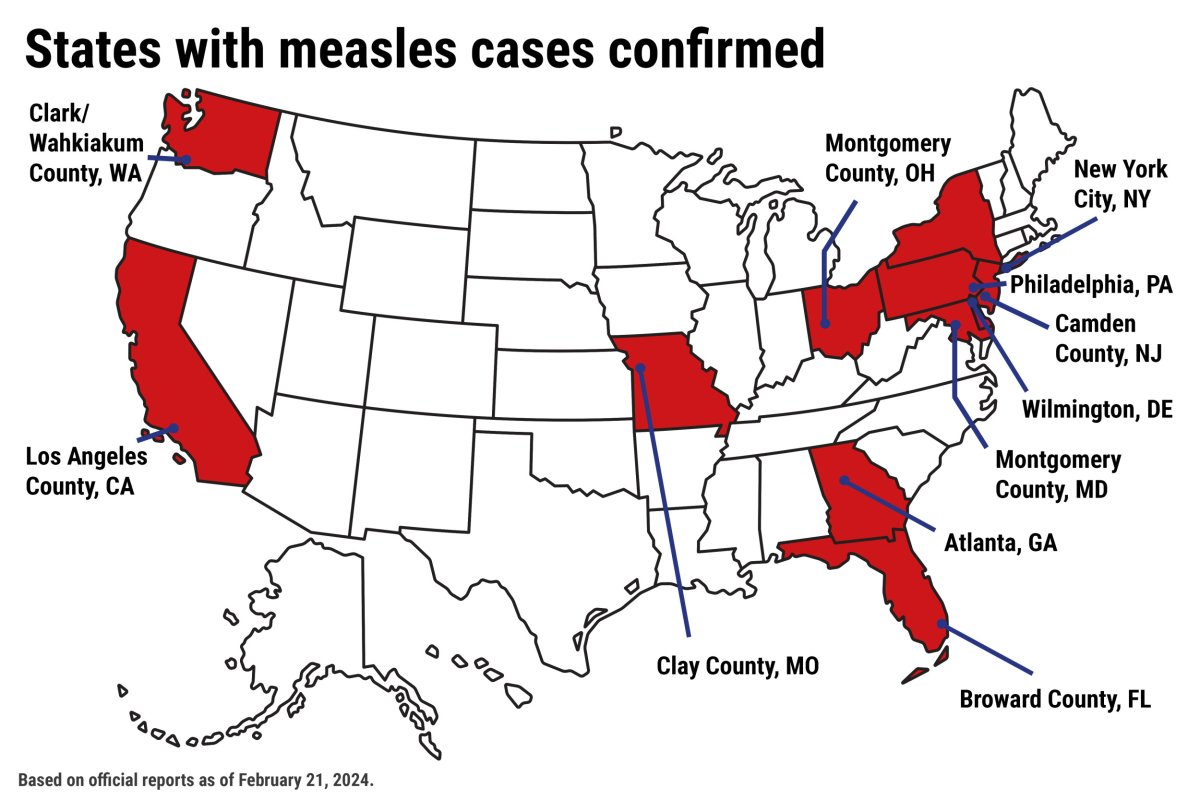Measles Persistence: Factors Contributing To Continued Outbreaks

Table of Contents
Low Vaccination Rates and Vaccine Hesitancy
A significant driver of measles persistence is the unfortunately persistent low vaccination rates in many parts of the world, fueled by vaccine hesitancy. This reluctance to vaccinate stems from a variety of sources, demanding a multifaceted approach to address the issue.
Understanding Vaccine Hesitancy
Vaccine hesitancy is a complex phenomenon with deep roots. Several factors contribute to this dangerous trend:
- Misinformation spread through social media: The rapid dissemination of false or misleading information about vaccine safety and efficacy online has significantly impacted public perception. Anti-vaccine groups actively spread propaganda, exploiting anxieties and distrust.
- Religious objections: Certain religious beliefs oppose vaccination, leading to unvaccinated populations vulnerable to outbreaks.
- Perceived side effects: While rare, potential side effects from vaccines are often exaggerated or misrepresented, fostering fear and apprehension.
- Lack of access to reliable information: In many communities, access to credible health information is limited, leaving individuals susceptible to misinformation.
The impact of anti-vaccine movements and the amplification of misinformation by celebrities cannot be overstated. These factors significantly erode public trust in established medical consensus and hinder vaccination efforts.
Addressing Vaccine Hesitancy
Combating vaccine hesitancy requires a proactive and comprehensive strategy:
- Educational initiatives: Targeted campaigns using clear, accessible language, debunking myths, and emphasizing the benefits of vaccination are crucial.
- Partnerships with community leaders: Engaging trusted community figures, such as religious leaders and local influencers, to promote vaccination can significantly increase acceptance.
- Improved communication strategies: Healthcare providers must be equipped to effectively address concerns, answer questions, and build trust with hesitant parents and individuals.
- Providing clear and accessible information: Making accurate information readily available in multiple formats (e.g., videos, infographics, multilingual resources) is vital.
Successful public health campaigns have demonstrated the effectiveness of these approaches in boosting vaccination rates and reducing measles persistence. Tailoring strategies to specific cultural and community contexts is paramount.
Gaps in Healthcare Access and Infrastructure
Measles persistence is also exacerbated by significant gaps in healthcare access and infrastructure, particularly in underserved and remote regions.
Challenges in Reaching Remote Populations
Delivering vaccines to remote or underserved communities presents numerous challenges:
- Lack of transportation: Difficult terrain and inadequate transportation networks impede vaccine delivery.
- Limited healthcare facilities: A shortage of healthcare facilities and trained personnel limits vaccination coverage.
- Inadequate cold chain storage: Maintaining the cold chain required for vaccine efficacy can be problematic in remote areas with unreliable power supplies.
- Cultural barriers: Cultural beliefs and practices can sometimes hinder vaccine uptake.
Innovative strategies, such as mobile vaccination clinics and community-based programs, are crucial for overcoming these logistical hurdles.
Resource Limitations and Funding Shortages
Financial constraints severely hinder vaccination efforts:
- Insufficient funding for public health programs: Limited resources restrict the scope and effectiveness of vaccination campaigns.
- Lack of trained healthcare personnel: A shortage of trained personnel to administer vaccines and educate communities further hampers progress.
- Inadequate supply of vaccines: In some areas, the supply of vaccines is insufficient to meet the demand.
Increased investment in global health initiatives is paramount to ensure equitable access to vaccines and address measles persistence effectively.
The Role of International Travel and Disease Importation
International travel plays a significant role in the global spread of measles, even in regions with high vaccination rates.
Measles Transmission Across Borders
Increased global travel and tourism facilitates the rapid spread of measles:
- Increased global travel and tourism: The ease of international travel allows infected individuals to spread the virus across borders quickly.
- Potential for outbreaks in areas with low immunity: Even highly vaccinated populations can experience outbreaks if measles is imported from areas with lower vaccination rates.
- Challenges in tracking and controlling outbreaks: Tracking and managing outbreaks linked to international travel is complex and requires robust surveillance systems.
Numerous measles outbreaks have been directly linked to international travel, highlighting the critical need for effective border control measures.
Importance of Global Surveillance and Response
International cooperation is essential for controlling measles outbreaks:
- Global surveillance systems: Robust surveillance systems are vital for early detection and timely response to outbreaks.
- Rapid outbreak detection and response: Quick identification and containment of outbreaks are crucial for preventing widespread transmission.
- International collaboration and data sharing: Collaboration between countries and international organizations is key for sharing information and coordinating responses.
The World Health Organization (WHO) plays a central role in coordinating global efforts to control measles, providing technical guidance and support to countries.
Conclusion
Measles persistence is a severe public health threat requiring a comprehensive approach. Addressing vaccine hesitancy, improving healthcare access, strengthening international collaboration, and increasing funding for vaccination programs are critical steps towards eliminating this preventable disease. By understanding the multifaceted factors contributing to measles outbreaks and implementing effective strategies, we can strive for a future free from this devastating illness. Continued vigilance and a global commitment to vaccination are vital for successfully controlling measles persistence. Let's work together to eradicate measles.

Featured Posts
-
 Unreleased Selena Gomez Song Poised To Become Her Next Top 10 Hit
May 30, 2025
Unreleased Selena Gomez Song Poised To Become Her Next Top 10 Hit
May 30, 2025 -
 Servicio Militar De Bts Implicaciones Para Su Regreso Musical
May 30, 2025
Servicio Militar De Bts Implicaciones Para Su Regreso Musical
May 30, 2025 -
 Empate De Tirar O Folego Manchester United X Arsenal
May 30, 2025
Empate De Tirar O Folego Manchester United X Arsenal
May 30, 2025 -
 Landlord Price Gouging Allegations Surface In Wake Of La Fires Selling Sunsets Take
May 30, 2025
Landlord Price Gouging Allegations Surface In Wake Of La Fires Selling Sunsets Take
May 30, 2025 -
 The Recent Decline In Us Measles Cases Factors And Future Outlook
May 30, 2025
The Recent Decline In Us Measles Cases Factors And Future Outlook
May 30, 2025
